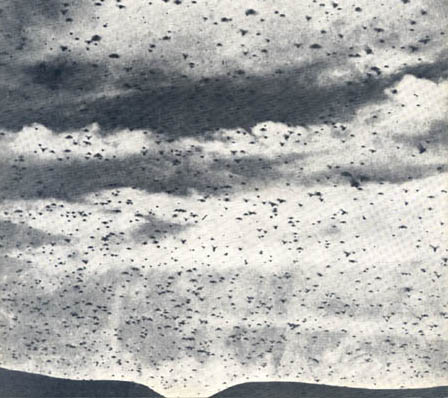
We call them “acts of God”—the natural disasters over which we have no control. They fill us with fright and awe: fright at the possible human toll, and awe at the enormous force of nature. If we no longer regard these natural forces as mysterious, this is largely due to advances in scientific knowledge. But what did our ancestors think—who lacked knowledge of plate tectonics or climatic wind patterns, who had no seismographs to measure earthquakes or satellites to track storms.
Most of us who live in sheltered metropolitan areas will never experience, at firsthand, the terror and devastation that can accompany a swarm of locusts. For us, locusts have no more meaning than a phantasmagoric nightmare (if we have thoughts about it at all). But such insect visitations were a grim reality to Israelites in the ancient Near East. Even today, sporadic outbursts of the desert locust devastate isolated areas in North Africa and Asia.a
Nowhere do we find a more vivid, poetic, description of a locust infestation than in the first two of the four chapters of the Book of Joel—an event that Joel must have experienced fully in all of its grotesque forms:
“Listen to this, O elders;
Give ear, all inhabitants of the land.
Already a library member? Log in here.
Institution user? Log in with your IP address.

